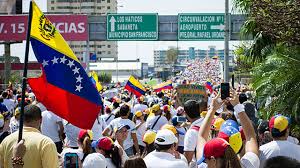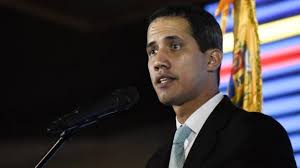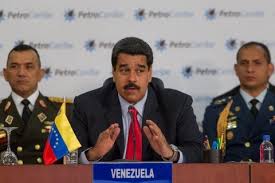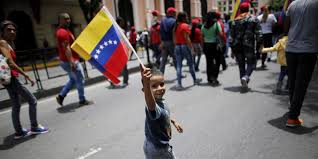New U.S. Sanctions Against Nicolás Maduro Place Venezuelan Oil Squarely in the Crosshairs

Noah Smith, an Associate at The Volkov Law Group, joins us for an interesting post on OFAC’s new Venezuela sanctions. Noah can be contacted at [email protected].
Venezuela is undergoing a political upheaval. Since his rise to power in 2013, the embattled Venezuelan President Nicolás Maduro has precipitated a humanitarian crisis that has driven some 3 million Venezuelans to flee abroad. Widespread protests have erupted (yet again) against the country’s chronic violence, inflation, and shortages of basic goods, and the political winds are steadily shifting away from Maduro and towards self-proclaimed “Interim President” Juan Guaidó. As increasing support from the global community has further legitimized Guaidó’s claim to leadership, the United States has ramped up its economic sanctions against Maduro’s government to further pressure him to relinquish power.

On January 25, 2019, President Trump issued Executive Order 13857, which expanded previous sanctions against Venezuela to include “any person who has acted or purported to act directly or indirectly for or on behalf of . . . the Maduro regime.” Three days later, the Treasury Department’s Office of Foreign Assets Control (“OFAC”) added Petróleos de Venezuela S.A. (“PDVSA”), the state-owned oil company that is one of Maduro’s most important sources of revenue, to its list of Specially Designated Nationals and Blocked Persons (“SDN List”). This action effectively forbids U.S. persons from dealing with PDVSA or any companies that are majority-owned by PDVSA. The targeting of Venezuela’s oil sector marks a substantial shift in U.S. foreign policy, as the U.S. had long sought to avoid rising gas prices and further harm to the Venezuelan people. PDVSA’s addition to the SDN List, however, comes in response to a worsening political crisis and is intended to help compel Maduro’s surrender.
The implications for U.S. companies with business in Venezuela are significant. Recognizing this, however, OFAC issued a series of “General Licenses,” which allow U.S. companies a period of time to finish up their preexisting dealings with PDVSA. These General Licenses are designed to help ease the transition and minimize the sanctions’ impact on the broader U.S. economy by authorizing certain categories of otherwise prohibited transactions. Entities subject to OFAC rules must ensure that any dealings with PDVSA are concluded before the appropriate deadlines.

OFAC’s most broadly-applicable authorization is General License 12(b), which allows U.S. companies to engage in transactions that are necessary to wind down their business dealings with PDVSA until 12:01 a.m. on February 27, 2019. Under this provision, U.S. companies can temporarily continue to export or import most goods, services, and technology to and from PDVSA before this specified deadline, as long as those business dealings stem from contracts or operations that were in place prior to PDVSA’s placement on the SDN List. General License 12(a) also provides a broader timeframe, until 12:01 a.m. on April 28, 2019, for finishing up preestablished deals that facilitate the import of petroleum products into the U.S. Here, we can see OFAC’s intent to soften the blow on U.S. gas prices by ensuring that the oil supply from Venezuela is not cut off too rapidly. For the time being, any payments that are made to PDVSA under these exceptions must be paid into a blocked, interest-bearing account that is maintained separately within the U.S.
Several other General Licenses help mitigate some of the sanctions’ practical consequences on U.S. interests. Under General License 10, for instance, U.S. persons who are physically located within Venezuela are permitted to purchase gasoline and other petroleum products from PDVSA for personal use. General License 14 allows transactions with PDVSA for the purpose of conducting official U.S. government business. General License 8 authorizes several large U.S. oil companies with extensive Venezuela-based operations additional time, until 12:01 a.m. on July 27, 2019, to transition out of Venezuela.

Due to the ongoing and evolving political crisis in Venezuela, the state of U.S. sanctions targeting Venezuela is subject to change rapidly. In the meantime, U.S. intentions have been clear. Further measures are not off the table, especially if Maduro continues to resist. OFAC has advised that “the path to sanctions relief for PDVSA and its subsidiaries is through the expeditious transfer of control of the company to Interim President Juan Guaidó or a subsequent, democratically-elected government that is committed to taking concrete and meaningful actions to combat corruption, restore democracy, and respect human rights.” As Treasury Secretary Steven Mnuchin put it, “the United States is holding accountable those responsible for Venezuela’s tragic decline and will continue to use the full suite of its diplomatic and economic tools to support Interim President Juan Guaidó, the National Assembly, and the Venezuelan people’s efforts to restore their democracy.”















